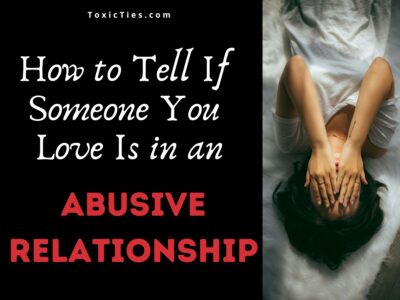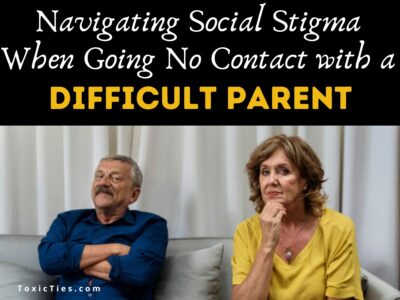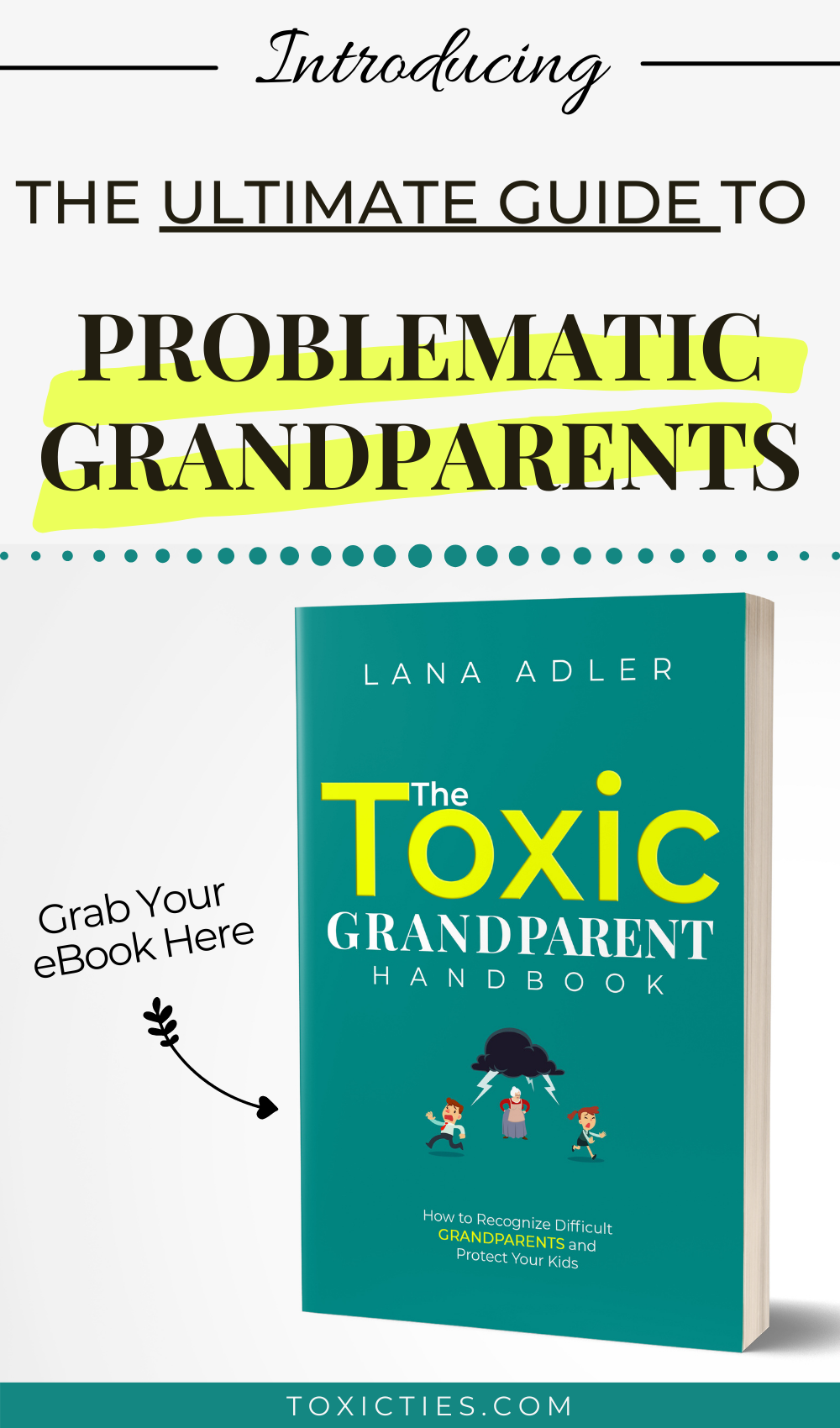Do you ever wonder why you are the way you are? Why do you do the things you do? Why is it so hard for you to lead a “normal” life, unburdened by mental struggles? You might be surprised to learn that character traits you thought were personal flaws aren’t actually your fault. They could be the legacy of growing up with an abusive parent.
Below are 10 character traits that scream that you grew up with an emotionally abusive parent. You might not identify with all of them. But if you recognize yourself in 7 or more items on this list, you may consider the idea that you’ve got some trauma to heal.
1. You’re a people pleaser
If you grew up with a parent whose love or respect was conditional, you had to figure out ways to keep that parent happy. Having a keen sense of how the people around you are feeling was a necessary survival skill.
But even though you’re now an adult, you’re still hyper-focused on making everyone happy. You say “yes” to whatever anyone asks of you, regardless of whether or not you want to do it. And your worst fear is disappointing or letting someone down.
Simply put, your abusive upbringing led you to develop this overwhelming urge to please others at all costs.
2. You put everyone else’s needs before your own
Neglecting your own needs goes right along with people-pleasing.
Maybe your parent had frequent unexpected emotional outbursts. So you grew up fearful of what can happen when others aren’t happy.
Or maybe your parent was so narcissistic, their grand needs and desires always trampled yours. So you never learned to identify or prioritize your needs.
Now, you go out of your way to take care of everyone else — even if that means you end up completely drained as a result.
3. You constantly question your decisions
Decision fatigue is real. It happens to all of us.
But when you can never seem to find your inner compass, it’s because someone’s taught you to believe it’s broken.
Parents who emotionally abuse their children often use a technique called “gaslighting.” Gaslighting is making someone question their perception of reality, and sometimes even their very sanity.
Abusive parents often gaslight their children to evade accountability and maintain control. They try to convince their children that their experiences aren’t real, valid, or accurate. As a result, they instill pervasive self-doubt in their children, which manifests as an inability to make decisions as an adult.
So, if you grew up believing your judgment to be flawed, it could be tough to trust your gut as an adult.

4. You feel perpetually lonely
You know that feeling of isolation, even when you’re in a room full of people?
There’s a loneliness that comes from never being fully seen or understood by your parent.
Maybe your parent was uncomfortable with your feelings, or feelings in general. Maybe they made fun of you, and then dismissed your pain: “Oh don’t be so sensitive! I’m just joking”. In other words, they neglected your emotional needs.
If that’s the case, finding emotional intimacy with people might feel foreign or unattainable to you now.
You might long for a sense of connection and belonging but struggle to connect with others.
5. You’re a workaholic
Do you find yourself putting all your worth into your achievements? You might subconsciously still be trying to get your parent’s approval.
If your parent pushed you to succeed in sports or academics as a kid, you may not have developed a sense of self-value outside of your accomplishments.
This is typical of families where one or both parents are narcissistic. The narcissist needs to live vicariously through the child who fulfills his or her ambitions. Meanwhile, the child’s emotional needs and identity are completely neglected.

6. You feel like you need to buy people’s affection
Do you negotiate your way into people’s hearts? That’s only natural if you had a parent whose attention always came with a catch.
Maybe you feel like the only way to get someone to spend time with you is by paying for their lunch. Or maybe you feel like your role is to be the “fixer” for all your friends’ problems and messes.
Fun fact: There are people out there who want to spend time with you, and don’t require anything in return!
7. You’re scared to set boundaries
As a child, you may have never learned that it’s okay to say no. Maybe you tried, and it was met with physical, verbal or emotional abuse.
Or maybe in your family children were never expected to have a voice of their own.
Now, setting a boundary around even the smallest things puts you in anxiety mode.
For example, many children are forced to hug or kiss family members, even when they’re not comfortable doing it.
Now, as an adult, you may find it difficult to have physical boundaries with other people. You may tolerate an occasional shoulder rub by an obnoxious boss or being tickled by your partner when everything inside you screams “NO!”
These types of situations can trigger real agony because you are conflicted between your gut feeling and a fear of upsetting someone.
8. You never cry
Not everyone is a crier–but it’s worth considering why.
Could it be that very early in life you learned that crying is unacceptable? Did your parents say that crying was a sign of weakness or immaturity? Or maybe they even punished you for it?
The truth is, crying is just a physical response to emotional stress. If you’re not crying as an adult, it doesn’t mean you’re never upset. It means you’re suppressing your natural stress responses.
9. You feel guilty for being happy
You’re out with your friends, having a great time. So why do you suddenly feel like you’re doing something wrong?
If you got the message from your parent that you were “nothing without them,” it might feel strange to realize that you’re actually better off on your own, or happier when you’re around other people.
Or if you had a narcissistic parent with a martyr complex, you grew up with an awareness that you are the reason for your parent’s suffering and sacrifices.
Burdened with so much responsibility and guilt from an early age, you find yourself incapable of relaxing and enjoying yourself.
10. Your self-esteem is low
It can be hard to develop a strong sense of identity if you were raised in an environment where you were always watched, criticized, and/or controlled.
Your abusive parent didn’t respect you. So you might have grown up believing that you’re not worthy of respect.
That couldn’t be further from the truth.
The extent to which your parent was or wasn’t capable of caring for and loving you is not a reflection on you. You are worthy of love, respect, and freedom, just as you are.

Healing the Wounds Inflicted by an Abusive Parent
If you notice that any of the above 10 signs are getting in the way of your happiness, recognize that you have the power to change them!
It takes hard work, but the empowerment that comes from taking ownership of your life is part of the process of healing from abuse.
So, let’s dive into it and talk about how we can overcome character traits imprinted by an abusive parent.
Know yourself
The better you know yourself — your needs, patterns, triggers — the more power you have.
Have you ever heard the saying “You can’t heal what you can’t feel”?
The idea is, with self-awareness comes the ability to change the things you want to change.
Now, to be exact, we’re not talking about changing who you are. Your individuality and your soul are unique and perfect.
We’re talking about changing the conditioning you learned as a result of growing up with an abusive parent.
Those things (i.e., people-pleasing, low self-esteem, etc.) are not really who you are. They are the self-adjustments (or more like self-mutilations) you had to make to survive an abusive and emotionally unpredictable environment.
Some of the things you can do to know yourself better are
- talking to a good friend
- reading books about trauma healing
- journaling
- therapy
- meditation
Boundaries
Setting boundaries? Yeah, that’s a tough one. How do you find the strength to say “no” when you have this irrational fear of disappointing others or being rejected if you don’t meet their expectations?
You just have to work on it. Like any skill in life, the more you practice it, the better you get.
Remember: setting boundaries is about asserting yourself. Without them, you end up bottling up your feelings and needs, just to be “nice” or avoid conflict. But deep down, you know it comes at the expense of your mental and emotional well-being.
You deserve to be happy too, my friend. You truly deserve happiness. It’s about time you start recognizing your own worth and making your well-being a priority. It’s not selfish, it’s necessary.
Advocating for yourself isn’t easy, but with some practice (and maybe therapy), you can break free from this people-pleasing conditioning.
Learning unconditional self-love
It’s hard to learn something you’ve never experienced.
Abusive parents are masters of conditional love. As long as you do what they say, they love you. The second you step out of line – they withdraw their approval and affection.
But the truth is, a parent shouldn’t dangle their love like a carrot in front of a mule. Healthy parental love is unconditional. It accepts, supports, and forgives all.
Even though you didn’t receive this kind of love growing up, as an adult you can still learn to love and accept yourself unconditionally.
Start by showing yourself compassion — deep, sincere, relentless compassion. Embrace your struggles and imperfections, even though your first impulse is to be self-critical.
You put so much pressure on yourself to be perfect. It’s time to show yourself the kindness you reserve for other people in your life.
Final thoughts
Growing up in an abusive environment is tough, and it can have a big impact on who we become as adults.
But here’s the thing: We’re not defined by our past, and we have the power to grow and heal from those experiences.
It’s never too late to take agency over your own life, no matter what happened to you as a child.
NEXT
10 Boundaries You Need to Set With Your Toxic Parent
21 Gut-Wrenching Lies You Learned From Your Narcissistic Parent








Leave a Reply